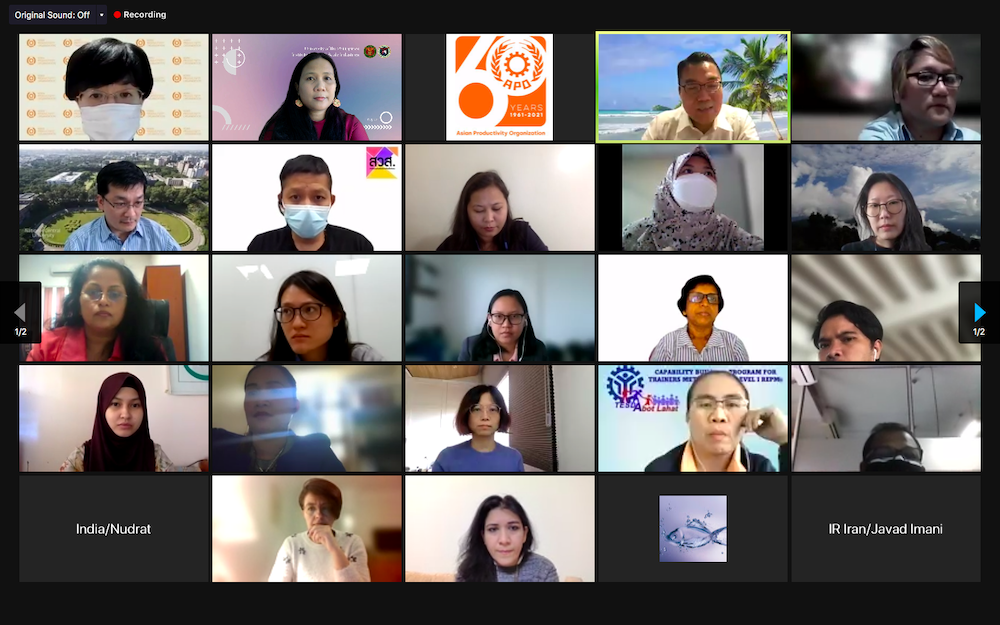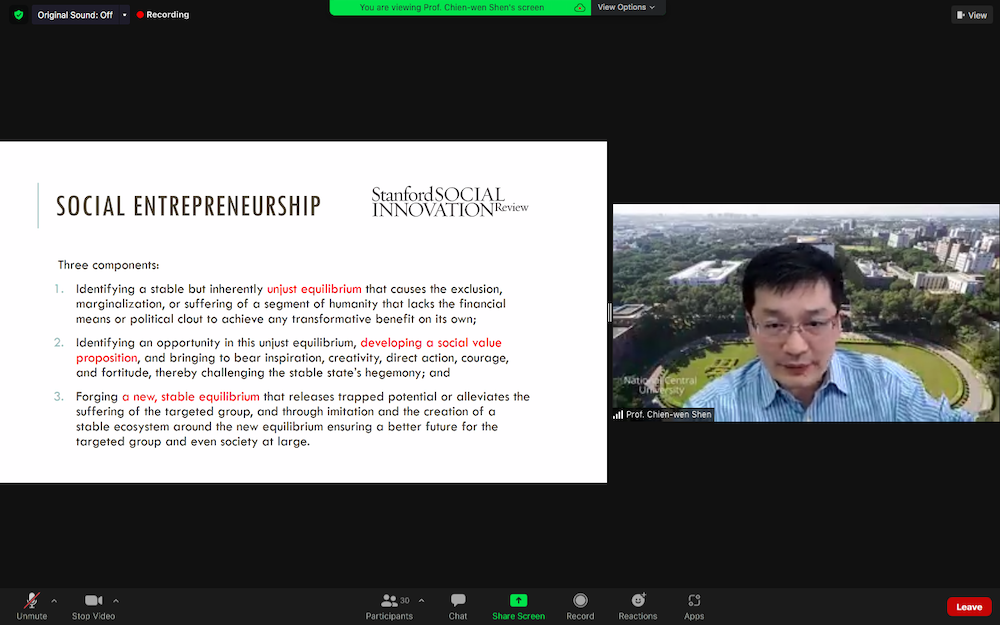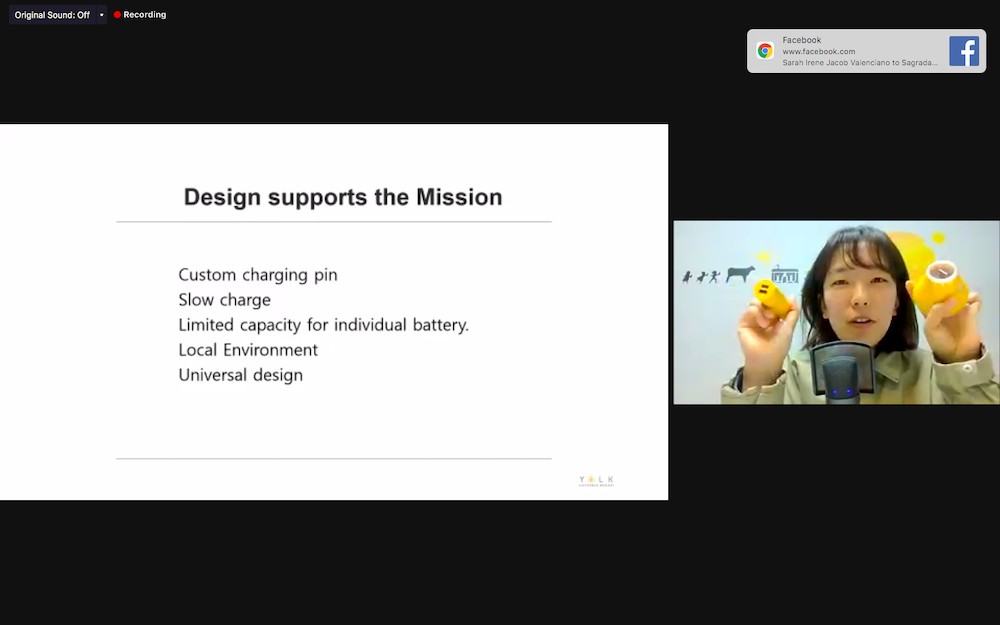The University of the Philippines Institute for Small-Scale Industries (UP ISSI), represented by Ms. Melanie V. Cabotaje, took part in the workshop, “Nurturing Social Enterprises” sponsored by the Asian Productivity Organization (APO) and implemented by the Development Academy of the Philippines (DAP).

The Workshop aimed to: (a) Promote social enterprises and social innovation in the service industry; and for the participants to: (b) Understand the key factors for developing social organizations; and (c) Gain insight into current social issues, how to devise solutions, and how to measure the impact of social enterprises. The Workshop was held on December 6-8, 2021, from 1:00 PM to 5:00 PM (Manila Time) via virtual sessions. There were 31 participants from 13 countries.
The three-day Workshop was divided into nine sessions; three sessions each day.
Dr. Chien-Wen Shen, Professor of Business Administration at the National Central University Republic of China, introduced the concept of social entrepreneurship in the first session. He emphasized the crucial role of social entrepreneurs in making an impact in our society and creating solutions to social issues and problems. The second session was a case study of a social enterprise in Indonesia, Aruna, which aims to provide better market access and fairer trading opportunities for the fishermen and buyers, while streamlining the administrative and financial paperwork involved in exporting seafood. Ms. Utari Octavianty, General Director of Aruna, shared that Aruna’s technology bypasses the numerous tengkulak, or middlemen, that span the local, provincial, inter-islands, and overseas levels, resulting in a more efficient and profitable business operation for the local fishermen. The third session was another case study of the Social Entrepreneur College Inc. (SEC), which aims to promote social entrepreneurship in Japan by raising and developing social entrepreneurs. Mr. Hideyuki Ezaki, President of Management Assistance Co., Ltd. in Japan, shared how this social enterprise supports over 100 small businesses through productivity improvement, overseas marketing, business planning, new service creation, among others.

The second day opened with Mr. Wan Song, CEO of Bookband Co., Ltd. Republic of Korea, sharing the story of RZ Manna, a social enterprise in Rwanda, East Africa. RZ Manna is a bakery established by a group of young people from South Korea in an aim to create jobs for unemployed youths. The speaker emphasized the need for ground work before establishing a social enterprise, i.e. conducting market research, developing a business plan, testing different strategies, among others. Dr. Chien-Wen Shen in Session 5 explained how social enterprises can receive funding through diverse sources, while exploring different organizational forms and measuring social impact. In Session 6, Mr. Hideyuki Ezaki talked about a recycling business in Japan. Citing this social enterprise’s experience, his presentation focused more on the process of establishing and operating a social enterprise, emphasizing the importance of: loving and believing in your business idea, keeping the business concept simple, identifying the societal problem your social enterprise will address and being pro-active about it, going through the proper business management process – i.e. conducting financial analysis and feasibility study.

The third and last day of the workshop started with the discussion of Dr. Chien-Wen Shen on the various criticisms being hurled against social entrepreneurship and social entrepreneurs, as well as the challenges and opportunities surrounding this field. He shared that some social enterprises focus too narrowly on the issues or facts that fit their agenda. He added that others criticize the methodology of a social enterprise, even if they agree with its goals. Some of the opportunities the speaker identified were: increasing government support on social entrepreneurship and social enterprises, growing corporate social responsibility and the integration of social and market logics. In Session 8, Ms. SungUn Chang, Founder and Chief Executive Officer of YOLK – Republic of Korea, shared the story of YOLK Solar Cow. To improve access to electricity and education in Kenya and Tanzania, the program has designed solar charging system that literally looks like a cow. Placed near schools, the solar cow has “power milk”—white, portable batteries—that students can take home to their families. The students attend classes while they charge their batteries using the solar cow. After school, they can each take their own batteries which they can use to light their homes in the evening. In this session, the speaker emphasized the crucial role of technology and innovation in addressing some of the most common problems in our society. In the last session, Mr. Hideyuki Ezaki introduced the SOFIPA (Sociedad Financiera del Pacífico) – a social enterprise in the form of a microfinance institution (MFI) in Mexico. SOFIPA offers financial support – credit and savings products – to small entrepreneurs in central west part of Mexico, which are mostly unattended by commercial banks and other MFIs in the country. SOFIPA serves rural women living in remote suburban and rural areas in the poorest states of Mexico.
The workshop ended with the participants sharing their learnings and insights. Ms. Cabotaje shared:
“The workshop provided generous space for social entrepreneurs from different countries and from various industries to discuss about their experiences, challenges and opportunities in building and managing their own social enterprises. Listening to different social entrepreneurs talk about their reflections and perspectives about social entrepreneurship and how their social enterprises are making an impact in their society is a huge learning experience for me.”
Disclaimer: The views expressed herein or in any article in the UP ISSI website are those of the authors and do not necessarily reflect the policies or opinions of UP ISSI nor the views of the University of the Philippines. Regarding Accuracy of Information and Usage of Data: Visitors and users of the UP ISSI website are advised that information contained within the website is assumed to be accurate. However, errors can occur even with computer-generated information. UP ISSI makes no representation regarding the completeness, accuracy, or timeliness of such information and data, or that such information and data will be error-free. Visitors are encouraged to review the official version of all documents on which they plan to rely on.